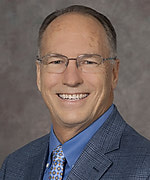
25 Mar With Better Health Comes Bigger Brains In US Population
MedicalResearch.com Interview with:

Dr. DeCarli
Charles DeCarli, MD, FAAN, FAHA
Victor and Genevieve Orsi Chair in Alzheimer’s Research
Distinguished Professor of Neurology
Director, Alzheimer’s Disease Research Center
and Imaging of Dementia and Aging (IDeA) Laboratory
Department of Neurology and Center for Neuroscience
University of California at Davis
Sacramento, CA 95817
MedicalResearch.com: What is the background for this study?
Response: The overall health of the U.S. population has improved dramatically over the last 100 years, Individuals are also living longer resulting in an increasing percentage of the population at risk for Alzheimer’s disease and related dementias (ADRD). Recent data from the Framingham Heart study, however, finds that dementia incidence may be declining. While many factors such as greater educational achievement and medical management of vascular risk factors may explain part of this effect, early life environmental differences also likely contribute.
MedicalResearch.com: What are the main findings?
Response: We found secular trends for larger brain volumes suggesting improved brain development amongst individuals born between 1930 and 1970. We hypothesize that early life environmental influences explain these results and may contribute to declining dementia incidence previously reported in the Framingham Heart Study cohort.
MedicalResearch.com: What should readers take away from your report?
Response: The findings likely reflect both secular improvements in early life environmental influences through health, social cultural, and educational factors as well as secular improvements in modifiable dementia risk factors leading to better “brain health” and reserve.
MedicalResearch.com: What recommendations do you have for future research as a results of this study?
Response: These findings are “cross-sectional” meaning that they are based on single measures for each individual. Measuring rates of change in brain structures over time across different birth cohorts would test the hypothesis that, in addition to getting larger, brains are becoming more resistant to aging changes that could further reduce dementia risk.
MedicalResearch.com: Is there anything else you would like to add? Any disclosures?
Response: While these effects are likely to be small at the level of the individual, they are likely to be substantial at the population level adding to growing literature that suggests optimized brain development and ideal health through modification of risk factors could substantially modify the impact of common neurodegenerative diseases such as stroke and Alzheimer’s disease on dementia incidence.
Disclosures: I am a consultant to Eisai and Novo Nordisk on Alzheimer’s disease treatment studies.
Citation: DeCarli C, Maillard P, Pase MP, et al. Trends in Intracranial and Cerebral Volumes of Framingham Heart Study Participants Born 1930 to 1970. JAMA Neurol. Published online March 25, 2024. doi:10.1001/jamaneurol.2024.0469
The information on MedicalResearch.com is provided for educational purposes only, and is in no way intended to diagnose, cure, or treat any medical or other condition.
Some links may be sponsored. Products are not endorsed.
Always seek the advice of your physician or other qualified health and ask your doctor any questions you may have regarding a medical condition. In addition to all other limitations and disclaimers in this agreement, service provider and its third party providers disclaim any liability or loss in connection with the content provided on this website.
Last Updated on March 25, 2024 by Marie Benz MD FAAD
